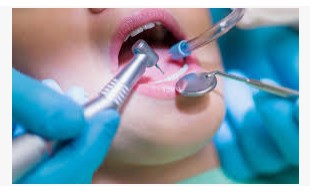Can the symptoms of Meniere’s Disease be caused by Dental Work?
Table of Contents
It is relatively common for people to contact Meniere’s Disease Help who had dental work done prior to the onset of their symptoms, have dental problems, or who have amalgam fillings. All of these have been linked to Meniere’s.

Meniere’s disease caused by root canal work is also a possibility. Root canals toxicity is a controversial topic. Dentistry in general calls the possible negative effect on health throughout the body from root canals a myth.
However biological dentists do not agree. Root canal removal is a common treatment carried out by biological dentists.
In addition to that Meniere’s Help often receives emails from Meniere’s sufferers who claim the onset of their symptoms followed root canal work.
A paper at ScienceDirect.Com discusses the possible links with dental issues and Meniere’s disease here is a summary:
Meniere’s disease may be caused by common intraosseous dental pathology
– Diagnosis using the comparative compression sign
Summary
“Meniere’s disease has been ascribed to a disturbance of the vestibular apparatus or its connections within the Central Nervous System.
Several hypotheses have been advanced regarding its aetiopathogenesis, but treatments based on these hypotheses have often not produced the desired results.
Two cases are described where common intraosseous pathology within the lower half of the functional face, i.e. within the mandible and maxillae, was shown to be the cause of Meniere’s disease.
Together, these cases contributed to the chance discovery of the comparative compression sign which, when able to be elicited, may be considered pathognomonic for a dental origin of the condition.
It is suggested that, in addition to other hypothesized causes involving the vestibular apparatus and the CNS, Meniere’s disease and vertigo may also be caused by common, readily-identifiable intraosseous dental pathology.
These unexpected findings open up a new field for future research.”
a23 Rechov Atzmon, Ramat Hasharon 47287, Israel
Root canal toxicity and the symptoms of Meniere’s disease
Studies have shown that there is a link between gum disease and serious chronic health conditions such as diabetes, heart disease, osteoporosis, respiratory disease, and cancer, and emerging evidence has shown that root canals pose the same health risks.
It would seem root canal capping can trap toxic bacteria in the gum. The bacteria would normally not be a problem but the root canal can trap it. That’s when it becomes toxic and cannot escape. It has to go somewhere and this leads to problems.
Possible effects can be:
- Infection after root canal: After the root canal procedure, the infection can progress inside or outside the location that the root canal was performed
- Accumulation of unwanted materials: Cholesterol crystals can accumulate and irritate the tissues where the root canal was done, as well as scar tissue or cystic lesions
- Immune system response: The procedure can cause an overactive immune response in your body, causing negative health impacts
- Toxic materials used in filling: Many dentists use materials such as amalgam to fill the tooth after a root canal is performed, which can be detrimental to your health due to mercury and other metals in the filling material
It is claimed that the health of your mouth can be directly linked to the health of your overall body.
Studies have shown that there is a link between gum disease and serious chronic health conditions such as diabetes, heart disease, osteoporosis, respiratory disease, and cancer, and emerging evidence has shown that root canals pose the same health risks.
Dr. Gerald Smith, International Center for Nutritional Research:
15 years of vertigo caused by a root canal treated tooth
“Duncan A. suffered sever vertigo for fifteen years. He had to sleep with two pillows to counteract the spinning sensation. He was also unable to fly.
Medical examination at Johns Hopkins University, Hershey Medical Center and numerous neurologists failed to diagnose Duncan’s underlying cause.
Duncan came in for an extended examination. A major red flag went up when Duncan mentioned he had a lower left second molar that was treated with root canal therapy.
When the tooth was tested by means of an energetic technique it showed the presence of infection with cytomegalovirus. Also this same virus was present in his left inner ear, which was the same side Duncan experienced his vertigo.
Treatment involved specific nutrients and home treatment with his own Rife machine. Two months into treatment his left ear popped open and his vertigo vanished. Duncan has been free of all his vertigo symptoms for the past several years.”
If you found this article useful Click here to support Meniere’s Help paypal.me/menieres
Related articles:
Click here to read Managing Meniere’s Disease
Click here to read The Need for Balance – Dealing with the Causes of Meniere’s
Did your Meniere’s symptoms start following dental work? Tell us all about it in the comments box below or email Mike at meniereshelp@gmail.com
References/Further reading: